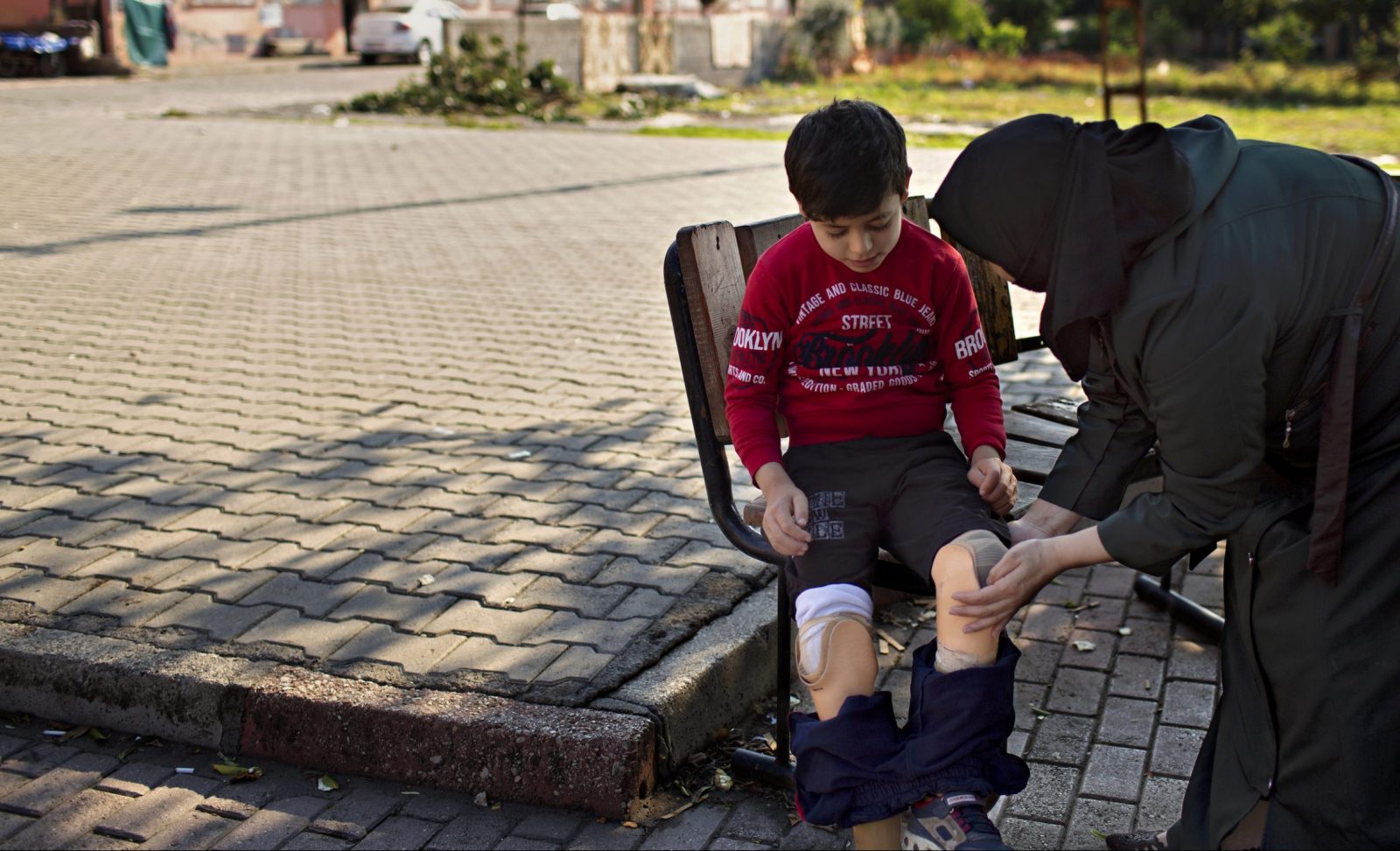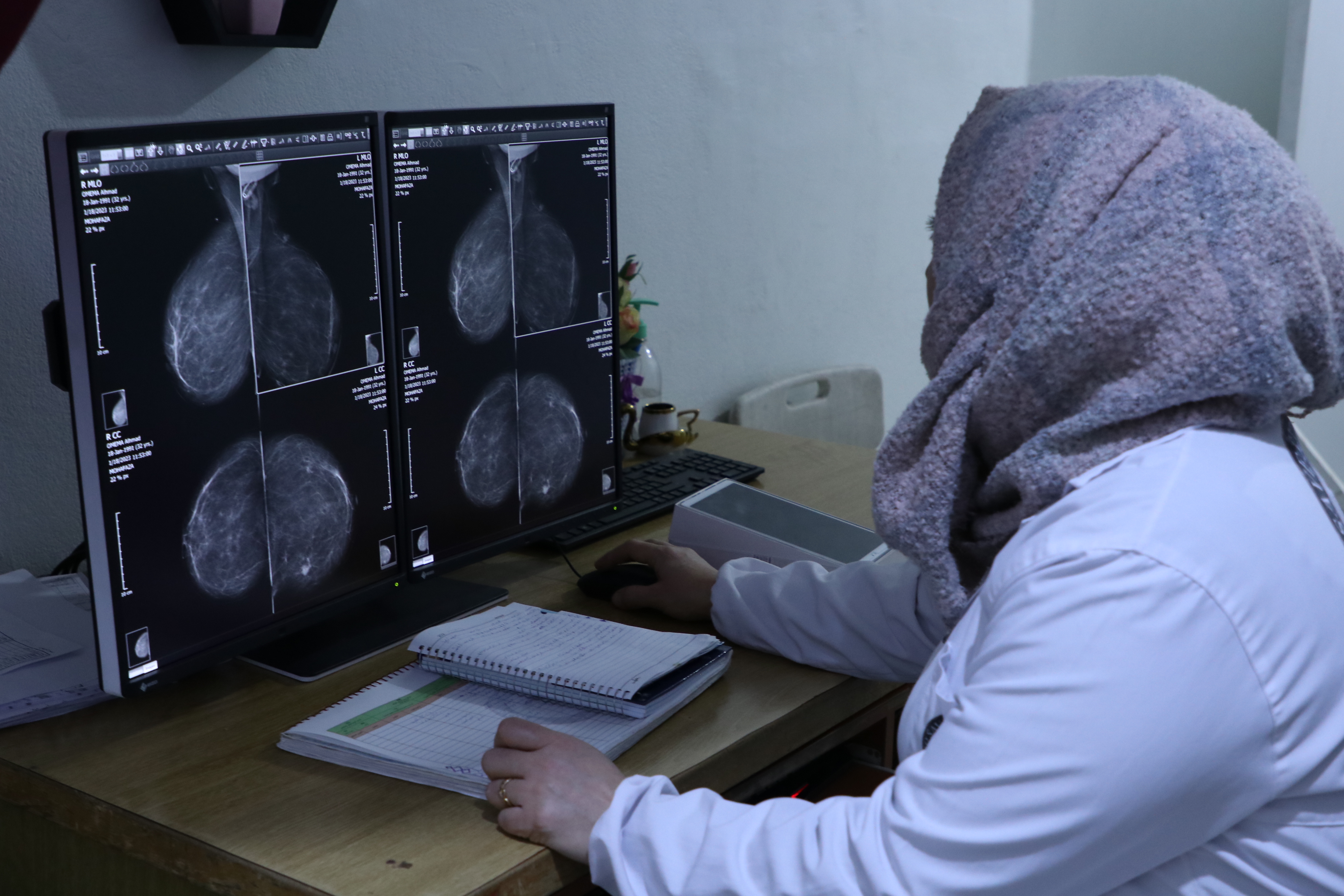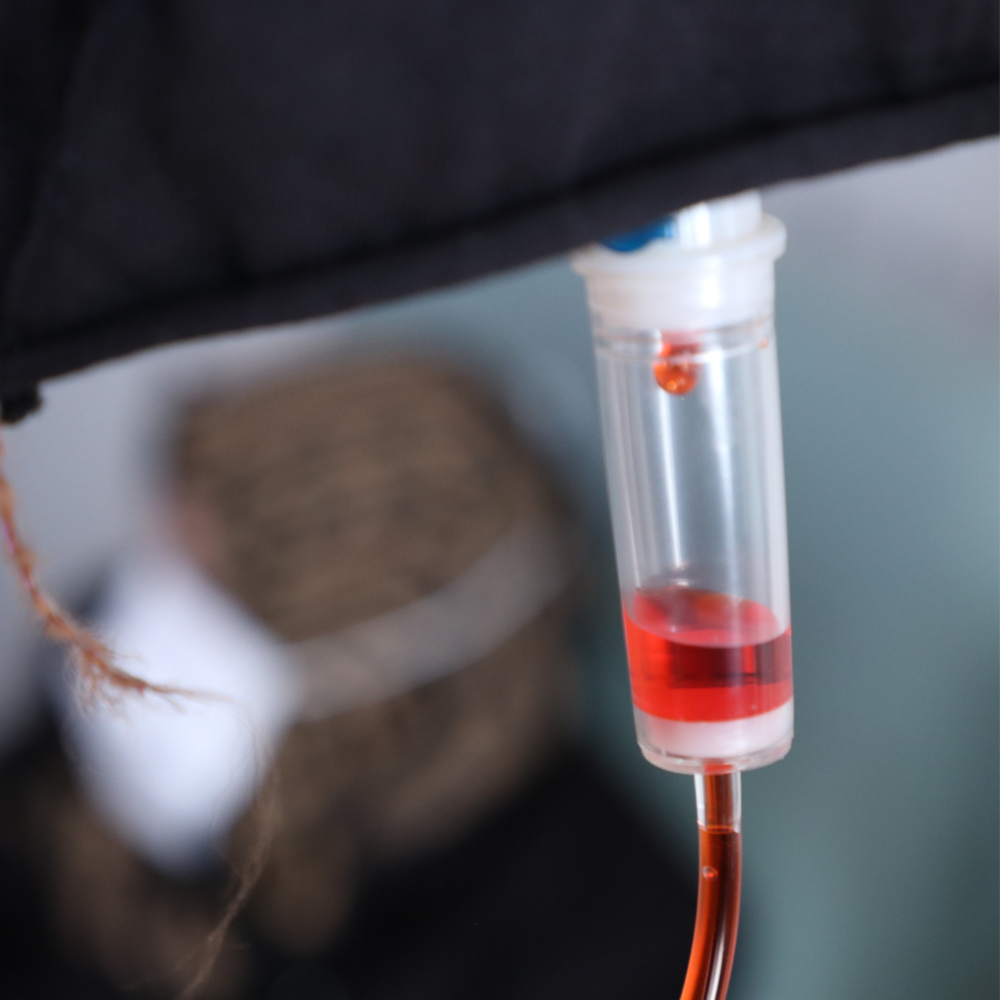Healthcare in Syria has been greatly affected by the ongoing conflict in the country. Roughly 50% of Syria’s health facilities have been destroyed, damaged or are no longer functional as a direct or indirect consequence of the conflict.
This has severely limited access to basic medical services including essential cancer care.
In Northwest Syria, the situation is particularly precarious. The “brain-drain” of specialised medical personnel who have departed the country in search of safety means only 35 oncologists remain across the whole of Syria to treat cancer cases. Shortages of equipment, medication and organized healthcare facilities in Northwest Syria only makes access to proper cancer care even harder. On top of this, the economic decline and the devaluation of the Syrian pound have made it difficult for Syrians to afford now expensive cancer diagnosis and treatment.
All of this is aggravated further by living conditions that inherently increase the risk of cancer.
Syrian communities now risk increased exposure to carcinogenic toxins in the environment, including soil contamination from unexploded ordnance and chemical weapons, lack of proper solid waste management, fumes from burning garbage dumps, and pollution of irrigation- and drinking water systems.
Moreover, the rising levels of poverty also mean increased food insecurity and malnutrition – factors that create micronutrient deficiencies and weaken the immune system, inherently increasing the risk of cancer.
Furthermore, Northwest Syria’s high levels of trauma and stress caused by displacement, food insecurity and the recurring threats of violence significantly affect mental health and wellbeing of Syrians, and often leads to adoption of negative coping mechanisms such as smoking or substance abuse that increase exposure to certain types of cancer, especially lung-, throat-, kidney-, and breast cancer.
Working together, Relief International and the Syrian American Medical Society have analyzed the existing gaps in the health system to screen, test and treat breast cancer, and the consequences this has on the overall wellbeing. The paper further gives testimonies from patients encountering barriers in accessing oncology care before and after the February earthquakes that hit southern Turkey and Northwest Syria, and concludes with recommendations for different actors to address these gaps.

Donate to Relief International
Families around the world are facing crisis. RI is supporting them every step of the way.
Donate now to help us do it!

